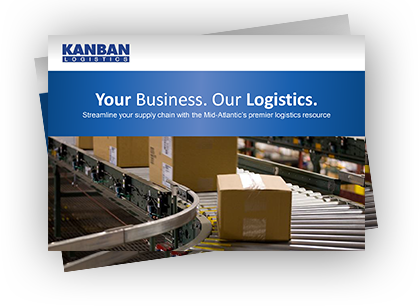The storage of hazardous materials seems like a dangerous proposition – and in many cases it is. But materials that qualify as “hazmat” run the gamut from seemingly benign products like paint and dry ice to more obvious dangers like fuels and acids. If you are tasked with warehousing products within the hazmat spectrum, you will need to know if your third-party logistics (3PL) provider meets hazmat storage requirements.
What Is a hazardous material?

According to the Institute of Hazardous Materials Management (IHMM), a hazardous material is “is any item or agent (biological, chemical, radiological, and/or physical), which has the potential to cause harm to humans, animals, or the environment, either by itself or through interaction with other factors.”
There are 9 basic classes of hazardous materials that are classified as a physical (e.g., materials that are corrosive or flammable) or health hazard (materials that can result in health effects if exposure occurs). These materials are regulated and further defined in the U.S. by agencies like the U.S. Department of Transportation (DOT) and the U.S. Occupational Safety and Health Administration (OSHA).
Can any 3PL/warehouse handle hazardous materials?
The answer to this is “No.” A warehouse must be certified to store hazmat products, and must obtain certification specific to each class of chemical that it wishes to store. The process of certification can be an arduous one and requires the involvement of multiple government agencies, as well as local fire departments and other entities.
Elements of 3PL hazmat storage requirements include:
Associate training: The Code of Federal Regulations (CFR) details the training requirements related to hazmat storage in 49 CFR 172.704. The requirements apply to anyone who will be handling or transporting hazardous materials including warehouse associates and administrators, as well as drivers. The requirements include items specific to safety training, security training, and training related to OSHA and other agencies. Importantly, this training must repeat periodically – even for associates who have already received initial training.
Hazard communication: OSHA’s Hazard Communication Standard (HCS) requires hazmat manufacturers and importers to prepare labels and Safety Data Sheets (SDS) to communicate hazard information to customers. This includes hazmat placards that are to be placed on all trucks that carry such materials. Workplaces are also required to share SDSs and labels with employees.
Storage/segregation: Each material’s SDS will dictate its storage conditions. The material must be clearly marked/identified and may require certain temperature or environmental conditions, including segregation from other materials or products. As a general rule, hazmat materials – no matter how seemingly harmless – are kept away from the rest of the 3PL’s stored products.
Kanban Meets Hazmat Storage Requirements
Kanban is fully certified to store and transport certain groups of hazardous materials like pressurized bottles, fire extinguishers, and certain flammables. Our hazmat products are securely stored in a separate facility, away from the rest of our product population.
In addition to U.S. hazmat storage requirements, Kanban is fully compliant with the Dangerous Goods Regulations (DGS) from the International Air Transport Association (IATA). We are also ISO 9001: 2015- and AS9100C-certified and are in full compliance with the Customs-Trade Partnership Against Terrorism (C-TPAT).
To learn more about our hazmat logistics capabilities, contact Kanban today.
Never Miss a Blog Post
Join our email list to receive new posts in your inbox. We will never spam you. Opt out anytime.
Blog Post Categories
- Outsourcing 3PL (73)
- Warehousing (72)
- North Carolina (53)
- east coast logistics (47)
- manufacturing logistics (26)
- Food Logistics (19)
- Fulfillment (19)
- CSX Carolina Connector (18)
- Miscellaneous (14)
- FTZ / Free Trade Zones (12)
- Free Trade Zone (FTZ) (12)
- Intermodal (12)
- Rail Siding (12)
- Port of Virginia (11)
- Cross Docking (8)
- Kitting (5)
- Aerospace (3)
- Pharmaceutical (3)
- Kanban News (2)
- QVC Rework Services (2)
- container yard services (2)
- COO (1)
- flexible (1)
- iso certification (1)
- operations (1)
- scale (1)
- scott freeman (1)





